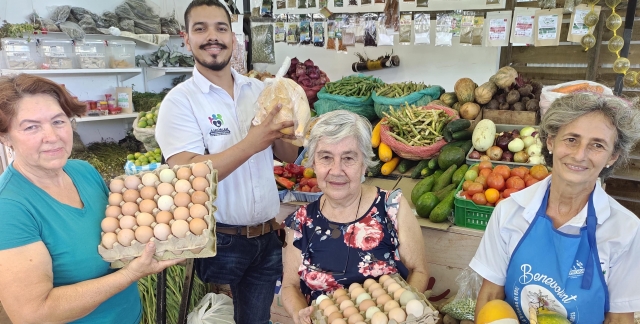Better life: In Colombia's Orinoquía, women are leading the way to bring about inclusive rural transformation

Members of the Meta Food Supply Network (La Red Meta) – Felicita Valderrama, Sergio León, Lilia Vásquez, and Graciela Rojas – showcase their locally sourced products at a bustling market. La Red Meta's efforts have not only empowered women and youth in the region but have also significantly elevated the overall quality of life for farming families.
©FAO/Angela Aya
Situated in the Orinoquía region of Colombia, the Meta department has abundant water resources and vast biodiversity. This is in one of the country’s primary agricultural hubs, and drives Colombia’s agro-industrial, commercial, and ecotourism sectors. Additionally, it serves as a significant agricultural reservoir, dispatching approximately 9,000 tonnes of agricultural and livestock products daily to other parts of the country.
However, out of the two million hectares available for farming, only 520,363 hectares are cultivated. That’s just 22% of the potential area. Furthermore, the food system's dynamics are flawed: most of the produce isn't consumed locally but is instead sent to different regions of Colombia through a complex network of middlemen.
Felicita Valderrama, a farmer and victim of the armed conflict, who came to Meta in search of better opportunities after being displaced, expressed the harsh realities of this system.
"The hardest thing for us farmers is that we have to take it to the middleman, because we suffer a lot to produce. You work and work every day, and when the time comes to harvest the crop, you go to offer it, and they pay you very little. That is disheartening."
